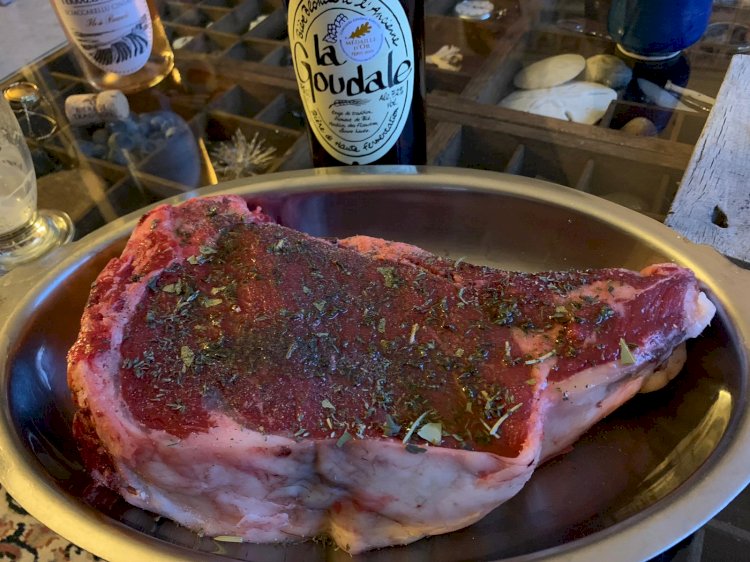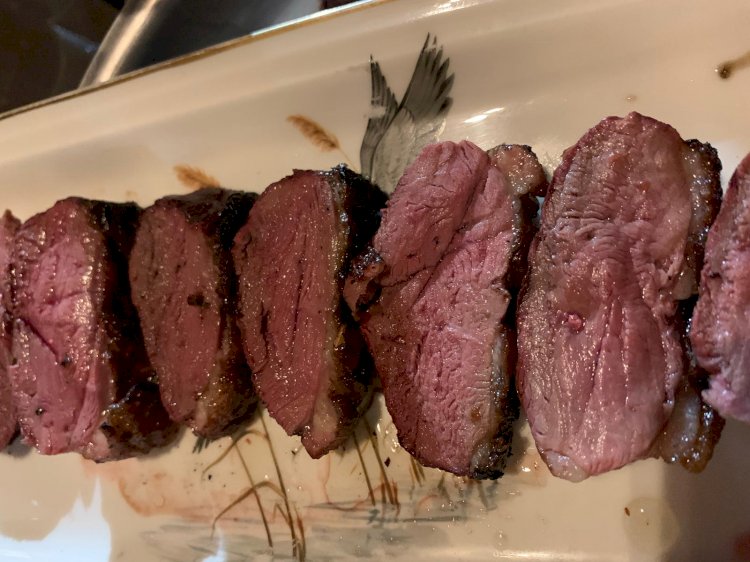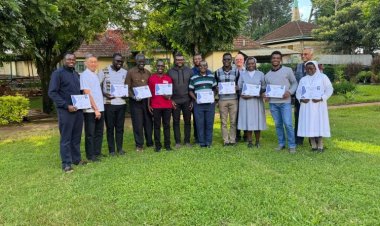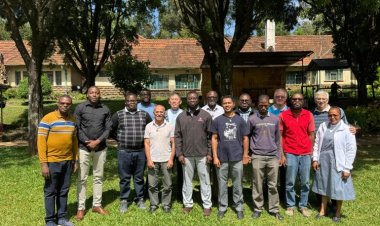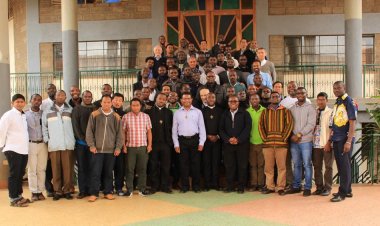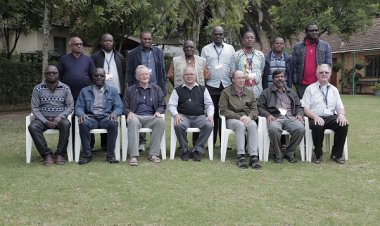Intercessory Prayer and Fasting
Many are rather skeptical about the value of self-denial for the sake of others. Is it not just superstition?
Intercessory Prayer and Fasting
Praying for a special intention is serious business. Whenever I have been asked to pray, or when I have offered to pray for someone’s intention, I think I often have done so too casually. And usually the request pops into my mind a few times for the next three days or so, and then drops out of mind, until something re-minds me of it again. But that is not being faithful to a commitment to pray for someone’s intention!
Sometimes I have written down a list of intentions which I kept in my breviary, so that at least twice a day, at lauds and vespers, when I opened my breviary, the list jumped at me and I would quickly glance through it and ask God’s blessing on all those listed. Then time would pass and only 2 or 3 names would still be current, so I would dump the list and replace it with a new one with those 2 or 3 names at the top. But often several weeks passed before I got around to draft a new list. And too often I have forgotten to add an intention to my lists! At least the discipline of mass intentions helps to ensure that I record those a little more conscientiously. But even that tends to be reduced to a once off mention and a mental note in the course of the mass, and then forgotten.
But why is such intercessory prayer so important? Is it not just a nice catholic gimmick?
Does it really matter? Does it really make a difference?
Well that depends on our faith! Do we trust that God is listening to us?
Does the prayer of the church, the divine office as we call it, where we pray with millions of others for the salvation of the world, have an impact on the progress of humanity, apart from glorifying God?
It must do if we believe in Jesus and everything he told us about prayer!
But as Jesus also said, we need to add “weight” to our prayer! The power of prayer is enhanced by accompanying acts of sacrifice. Jesus, both by his words and example taught us the value of joining some sacrifice to prayer (Mt 4:1-2). He also gave directions about the way we should fast. He denounced penance and fasting which turns one into a miserable self-pitying sympathy-seeking hypocrite. But he did express his support for the practice of fasting (Mt 6:16-18), not just verbally but through his own example. An interesting instance of this occurs in the account of the healing of a possessed boy. A man brought his demented son to Jesus. The father comments: “I brought him to your disciples, but they were unable to cure him”. Then Jesus heals the boy, and when the apostles see this, they ask Jesus: “Why were WE not able to expel the demon ourselves?”
Jesus replies: “…. This is the kind of thing that can only be accomplished through prayer and fasting!”
Many are rather skeptical about the value of self-denial for the sake of others. Is it not just superstition?
Have all those penances by thousands of monks and nuns not been all in vain?
Is it not silly to offer the pain of an illness for the redemption of the world?
Do personal sacrifices have any value before God?
Having been quizzed about this a number of times, and having had occasion to defend this belief, I remain convinced that this practice, is consistent with the best traditions of our Christian heritage. Pope Francis has several times recently called us to pray together for a day, for a special intention, with all fellow believers. And whenever he calls us to prayer, he also encourages us to fast and to include some acts of charity.
Even the Old Testament is filled with accounts of people fasting when they prayed for urgent intentions. [See - Judges 20:26; 1 Sam 14; 2 Sam 12:16;Psalm 35:13; Psalm 69:10; 1 Kings 21:9; Esther 4; Esr 8:21; Jonah 3:5; Dan 10:2 to list but a few.]
Furthermore, the history of the church also tells of countless Christians whose lives reflected their conviction about the value of binding prayer with sacrifice, and who with God’s grace accomplished marvels. Any exorcist will tell you how he has to prepare himself for an exorcism with several days of fasting and praying.
And according to the visionaries of our Lady at various apparition sites, one of her constant requests is that people make their peace with God through repentance, prayer and fasting! And so maybe when we are asked and offer to pray for someone’s intention, if we wish to see “results”, we need to add some penance, if not fasting, to our praying. The ‘penance’ could be some extra almsgiving.
My own mother, when in her sixties and seventies, was part of a prayer movement –‘Mary mother of mercy’- that prayed for expectant mothers who were intent on aborting their babies. One member of the movement would be allocated, case by case, an ‘unwanted pregnancy’. My mom would receive a phone call with the first name of the lady, and would not only pray intensely, but also fast for a week, so that the mother would reconsider her intention not to give birth to her child. She would give up meat and fish among other of her favourite foods, and it was a sacrifice which I admired, considering her rather advanced age. It was a condition of the membership, that you would both pray and fast each time you were “responsible” for a mother in distress. Sometimes my mom would receive the good news from the coordinators that her prayers had borne fruit. Other times the news was not glad but sad.
Another instance of intercessory prayer backed by some form of fasting which I have experienced, has been in the Encounter Movements. Every engaged or married couple, or hurting couple (in the case of Retrouvaille) participating in a program, is allocated a couple who previously experienced the same program, to pray for them for the duration of the course. Some “prayer couples” decide to sleep on the floor on Friday and Saturday nights as a form of penance to “add weight” to their prayer. Some abstain from alcohol or smoking for the duration of the weekend. Some fast on bread and water for part of the weekend. Others set alarms on their phones to pray at different intervals for a few minutes. Some give up T.V. watching for the weekend while they pray for Encounter participants. We believe the success of the weekend for each couple depends not on the presenting team, or on the magic formula of the program, nor on the efforts of the participants themselves, but first of all on God’s grace, for which prayer backed by penance is the generator. “If the Lord does not build the house, in vain do the workers labour!” (Ps 127) Prayer couples ensure that God is intensely present and involved in the building of the relationships of the couples in their moment of grace.
As Salesians, we are not great at fasting! It is not integral to our spirituality, animated more by Don Bosco’s recommendation that instead of undertaking extra penances, we simply do our duty, conscientiously, wholeheartedly and cheerfully. So yes, we need not do any of those extras, but we ought to find some way to heighten our awareness of the persons with whom we are in union of prayer. It is not just what all this praying can do for the pray-ees, but what it can do for us the pray-ers. And when we take praying for someone’s intention seriously enough, we become aware of how we ourselves are greatly enriched through many blessings.
As for the third injunction of Jesus in today’s gospel regarding almsgiving. For us Salesians, our principal method of fulfilling it is by making the sacrifices required in dedicating our life to the education and evangelizing young people.
Francois Dufour sdb


